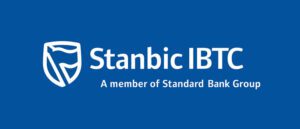


Positive outlook for Africa’s economy as GDP growth to reach 3.8%, 4.2% in 2024, 2025
…AfDB President lauds 15 African countries for surpassing 5% output growth
By Sodiq Adelakun
Africa’s real Gross Domestic Product (GDP) growth is predicted to reach an average of 3.8 percent and 4.2 percent in 2024 and 2025, according to the African Development Bank (AfDB).
This forecast, outlined in the bank’s latest Macroeconomic Performance and Outlook (MEO) report, surpasses the projected global averages of 2.9 percent and 3.2 percent.
The report also highlights that Africa is expected to maintain its position as the second-fastest-growing region, following Asia.
“The top 11 African countries projected to experience strong economic performance forecast are Niger (11.2 percent), Senegal (8.2 percent), Libya (7.9 percent) and Rwanda (7.2 percent).
“Others are Cote d’Ivoire 6.8 percent, Ethiopia 6.7 percent, Benin 6.4 percent, Djibouti 6.2 percent, Tanzania 6.1 percent, Togo 6 percent, and Uganda at six percent,” the report said.
It quoted Dr Akinwumi Adesina, AfDB’s President, as saying “in spite the challenging global and regional economic environment, 15 African countries have posted output expansions of more than five percent.”
Adesina, therefore, called for larger pools of financing and several policy interventions to boost Africa’s growth further.
It was gathered that Africa’s Macroeconomic Performance and Outlook is a biannual publication released in the first and third quarters of each year.
It complements the existing African Economic Outlook (AEO), which focuses on key emerging policy issues relevant to the continent’s development.
The MEO report provides an up-to-date evidence-based assessment of the continent’s recent macroeconomic performance and short-to-medium-term outlook amid dynamic global economic developments.
Adesina said the latest report called for cautious optimism given the challenges posed by global and regional risks.
He listed the risks to include rising geo-political tensions, increased regional conflicts, and political instability all of which could disrupt trade and investment flows, and perpetuate inflationary pressures.
According to Adesina, fiscal deficits have improved, as faster-than-expected and recovery from the pandemic helped shore up revenue.
“This has led to a stabilisation of the average fiscal deficit at 4.9 per cent in 2023, like 2022, but significantly less than the 6.9 per cent average fiscal deficit of 2020.
“The stabilisation is also due to the fiscal consolidation measures, especially in countries with elevated risks of debt distress.”
The AfDB boss said that with the global economy mired in uncertainty, the fiscal positions of the African continent would continue to be vulnerable to global shocks.
“The report shows that the medium-term growth outlook for the continent’s five regions is slowly improving, a pointer to the continued resilience of Africa’s economies”
Presenting key findings of the report, the AfDB’s Chief Economist and Vice President, Prof. Kevin Urama said growth in Africa’s top-performing economies had benefitted from a range of factors.
Urama said the factors include declining commodity dependence through economic diversification, increasing strategic investment in key growth sectors, rising both public and private consumption, and positive developments in key export markets.
“Africa’s economic growth is projected to regain moderate strength as long as the global economy remains resilient, disinflation continues, investment in infrastructure projects remains buoyant, and progress is sustained on debt restructuring and fiscal consolidation,” he said.
On his part, Amb Albert Muchanga, the Commissioner for Economic Development, Trade, Tourism, Industry and Minerals, African Union Commission, said the future of Africa rested on economic integration.
According to Muchanga, our small economies are not competitive in the global market. Moreover, a healthy internal African trade market can ensure value-added and intra-African production of manufactured goods.
He said that the MEO forecast, and recommendations would be made available to African heads of state.
He said the report would be useful when the African Union made its proposals to the G20- an informal gathering of the world’s largest economies to which the Union was admitted in 2023.
“The improved growth figure for 2024 reflects concerted efforts by the continent’s policymakers to drive economic diversification strategies focused on increased investment in key growth sectors.
“And the implementation of domestic policies aimed at consolidating fiscal positions and reversing the increase in the cost of living and boosting private consumption,” Muchanga said.
Also speaking, Zimbabwe’s Minister of Finance and Economic Development, Prof Mthuli Ncube described the report as being “on point” and consistent with the reality in his country.
Ncube said it was useful for economic planning across Africa and urged AfDB to continue its thoughtful leadership to help policymakers continue to build resilience to withstand shocks and drive growth.
He said, “Zimbabwe expects slower growth due to climate shocks in the region. Southern African countries depend on agriculture for economic growth, so climate-proofing agriculture is key.
“We are in talks with creditors to restructure its debt, which is slowing economic growth. Internally, the country will focus on economic and governance reforms and reforms around property rights to increase agricultural production.”
According to Prof. Jeffrey Sachs, the Director of the Centre for Sustainable Development at Columbia University, around 41 countries in Africa are expected to achieve an economic growth rate of 3.8 percent by 2024.
Sachs also stated that in 13 of these countries, the growth rate would be more than one percentage point higher than in 2023. To achieve a growth rate of 7 percent or more per year, Sachs emphasised the importance of long-term affordable financing as part of Africa’s strategy.
He highlighted that Africa is currently paying a high-risk premium for debt financing and urged the G20 to address this issue.
Sachs suggested that loans to Africa should have a minimum term of 25 years or longer, as short-term borrowing can be detrimental to long-term development.
Additionally, he called for the African Development Bank (AfDB) to be better resourced in order to meet Africa’s financing needs. Sachs serves as the UN Secretary-General António Guterres’ Advocate for Sustainable Development Goals.



